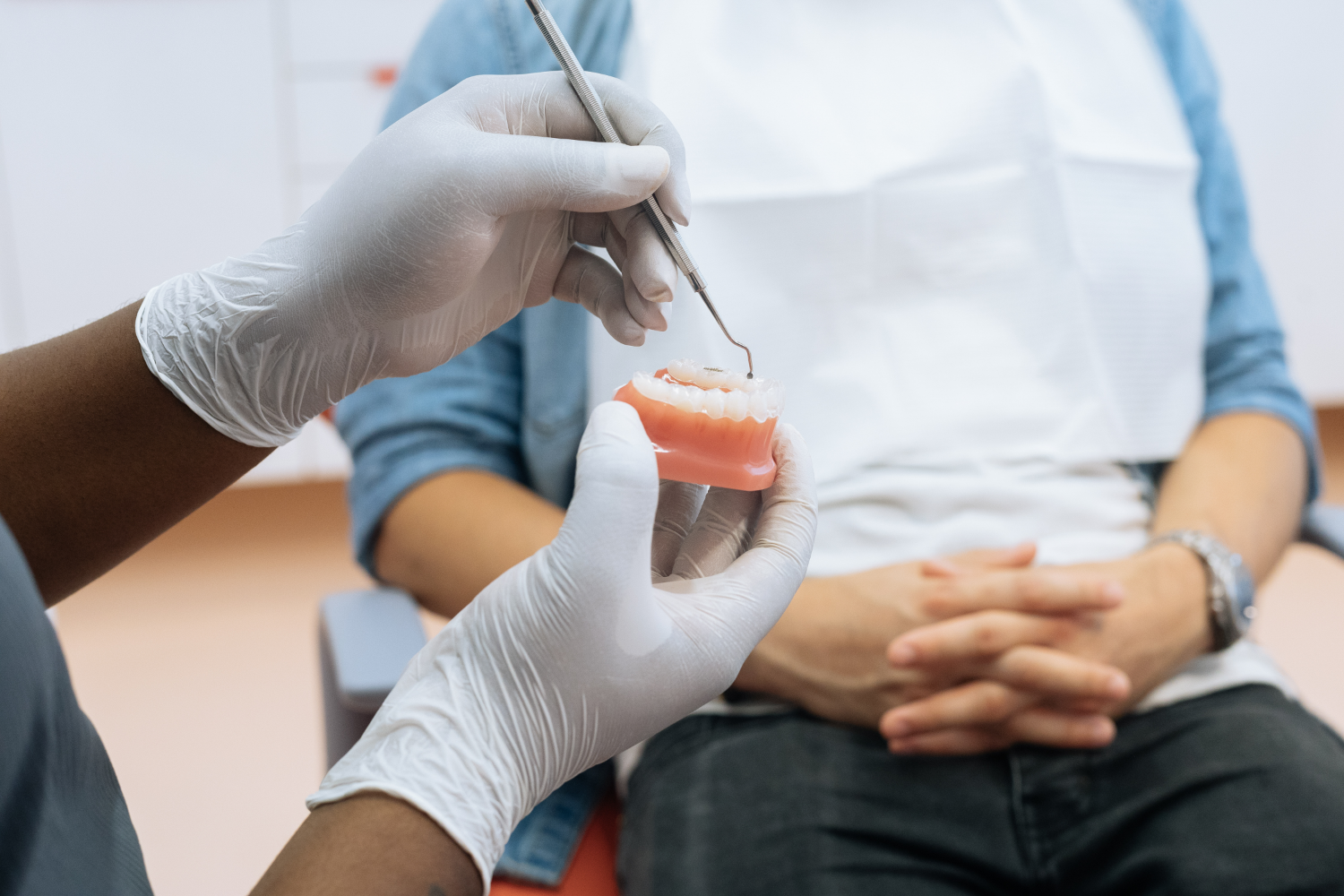If you suffer from painful gums, you aren’t alone. According to the CDC, almost 43% of adults over the age of 30 have some sort of periodontal disease. Keeping your gums healthy is the first line of defense in oral hygiene. There are many causes of painful gums, but there are things you can do to ease the pain and even reverse the damage if you act quickly.
4 Common Causes of Gum Pain
Brushing or Flossing Techniques
In an effort to keep your teeth and mouth sparkling clean, it’s possible you’re being too overzealous with your brushing and flossing. If this is the case, you may notice that your gums are most often sore after your done with your morning or evening oral hygiene routine. This is an easy fix because it’s completely under your control. Make sure you’re using a toothbrush with soft bristles and that you aren’t using too much pressure. Be gentle when you floss around the gum line, being sure not to cut into the gum too much as you move from tooth to tooth.
Canker Sores
Canker sores are painful ulcers that form on the gums and other tissues in your mouth. No one is sure exactly what causes them, but most theories lean toward a viral or bacterial infection. Canker sores usually look like small, red blisters but they can also form a coating making them look white. They are not contagious, and most of these lesions go away on their own within a week or two. But if you have one that lasts three weeks or more, it’s best to make a dental appointment.
Tobacco Products
Any type of tobacco use can be the cause of sore gums. Cigars, cigarettes, and chewing tobacco all put you at greater risk of developing some form of gum disease. According to the CDC, smoking weakens the immune system, making it harder for the body to fight off infection. If you use tobacco products, you are twice as likely to suffer from gum disease than someone who doesn’t.
Gum Disease
Even the mildest form of gum disease can cause painful gums. Gum disease is a very serious condition. Symptoms include red, swollen, or bleeding gums, pain when chewing, and teeth that become sensitive to hot or cold. Gum pain due to mild gum disease needs immediate attention because gingivitis can progress to more serious gum and oral health problems, like periodontal disease. If you suspect your gum pain is a result of gingivitis or periodontal disease, see your dentist for a dental exam as soon as possible. The earlier you begin treatments, the more likely it is that you can reverse the damage.
How To Get Rid of Gum Pain
If you are experiencing gum pain, there are several home remedies you can try that may relieve the pain.
Salt Water Rinse
One of the most popular home remedies you can try for painful or swollen gums is swishing your mouth with salt water. Make your own rinse by warming one cup of water on the stove or in the microwave. Mix in one teaspoon of salt and stir until dissolved. Rinsing your mouth out at least twice a day every day with this salt water mixture helps prevent the growth of bacteria and helps reduce the swelling. Continue swishing twice per day until the pain subsides.
Compresses
Hot and cold compresses are both great anti-inflammatory aides and can help reduce gum pain. Make a hot compress by soaking a clean cloth in warm water and wring out any excess. Apply it to your face wherever you feel the pain. You can make a cold compress by wrapping an ice pack with another clean cloth and use it the same way. If the pain is especially bad, try alternating between hot and cold compresses every 20 minutes or so.
Tea Bags
Choose a tea that is high in astringent tannins, like those used in black or green tea, or one that contains herbs with anti-inflammatory properties such as ginger or chamomile. Steep the tea bag in boiling water for five minutes and let it cool. Apply the tea bag directly to the area of your gum pain and let it sit for at least 5 minutes. Not only does this soothe your pain, but it also absorbs any substances that are causing gum irritation possibly helping pain and sensitivity.
Over The Counter Pain Relievers
If the above home treatments don’t work, you can always take an over the counter pain reliever. Gum pain may respond best to an anti-inflammatory pain reliever, such as an NSAID, but Aspirin and Tylenol can work as well. You may also try a medicated gel that can numb your gums and instantly relieve the pain, such as Anbesol.
Don’t Forget to Call Your Dentist
If you are experiencing gum pain that is not related to overly aggressive brushing, it could indicate a serious oral health problem. Having a thorough dental exam can determine if your symptoms are due to infection, excess plaque/bacteria problems, hormonal changes, or even an underlying health issue. Our dental professionals can help and get you some relief from the pain. Don’t forget that prevention is the best way to treat gum disease! Treat your teeth well and your gums will thank you for it. Schedule an appointment today!
